We review the latest evidence on the best foods for morning sickness and whether they really work.
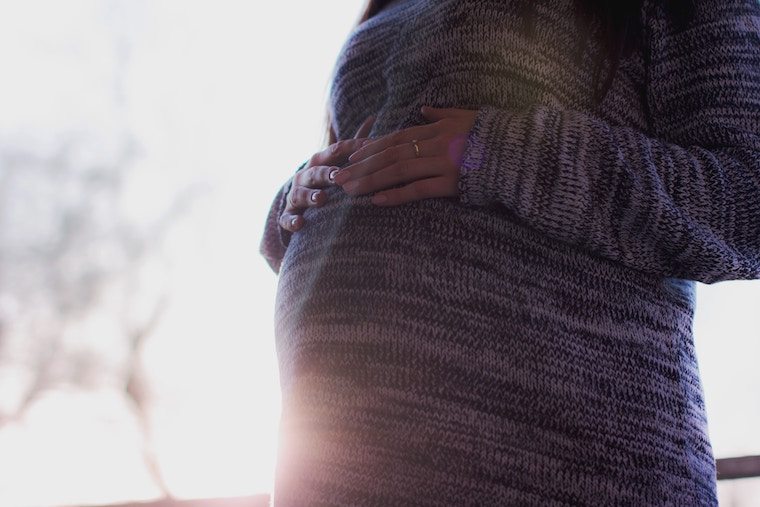
Confession time: sometimes being a woman can suck. Hear me out. I’ve spoken in the past about women hardships. I’ve spoken about mother nature’s lovely gift that graces us once a month and don’t even get me started on the wage gap and our reproductive rights being thrown around by old white men. Pushing the patriarchy aside, I also want to say that I’m a proud female and it’s never been a more exciting time to be a woman. As a woman we are given a gift of GIVING life. That’s pretty great.
However, like most rewarding things in life, it comes at a price. Yes, pregnancy can have its Kodak moments, but it can also be ugly. Constant pain without relief, body changes, nonstop cravings, and the best of all: morning sickness. Which for people that didn’t know, it doesn’t just happen in the morning. TRUST ME.
Now, there are some lucky woman that don’t experience morning sickness, but that number is super slim. According to the American Pregnancy Association, 85 percent of pregnancy women experience nausea and vomiting, while 60-70 percent deal with the actual throwing up. I don’t like those odds. I myself started my pregnancy off thinking I might have an easy ride, but nope, then it hit me. Hard. And since so many of the important things I do in my job takes place early in the morning, not barfing on the host started to constitute a good day.
There’s no research to suggest we can PREVENT morning sickness, but there is some evidence about the best foods for morning sickness to lessen your symptoms.
Foods That Help with Morning Sickness
Ginger
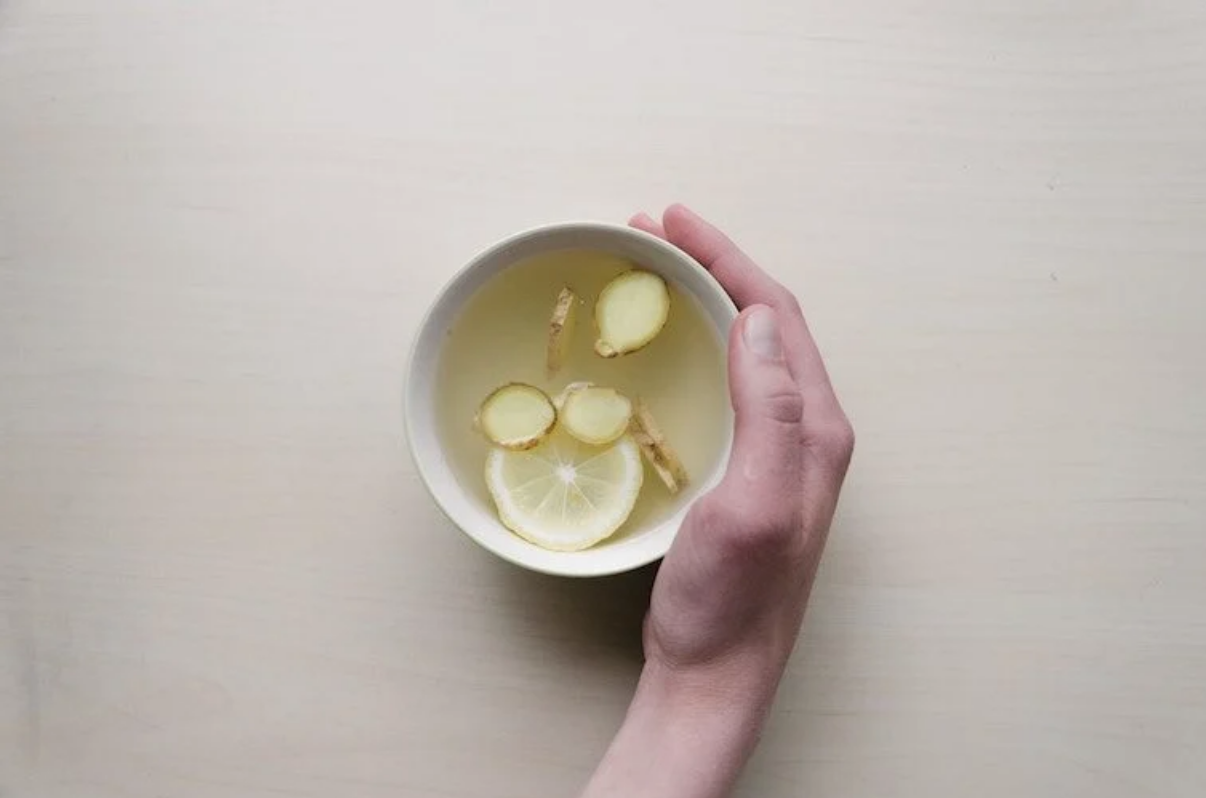
The use of ginger to settle an upset stomach is a common remedy and has been studied quite a bit. Interestingly enough, ginger is the only nonpharmacological intervention recommended by the American College of Obstetrics and Gynecology. Ginger acts on our body by stimulating movement in our gastrointestinal tract, the flow of our saliva, bile and gastric secretions. In a double blind cross over trial, 70 percent of woman treated with 250 mg of powdered ginger root four times a day felt the ginger significantly relieved symptoms compared to the placebo. In another randomized control trial, 70 pregnant women at 17 weeks were given 250 mg of ginger four times a day for four days. Women given ginger experienced significant improvements in nausea symptoms compared with the placebo group.
Tip: Drink flat ginger ale (carbonation may irritate stomach), sniff fresh ginger, sip on singer tea, or eat ginger candies (I basically lived on these for the first 14 weeks).
Lemons
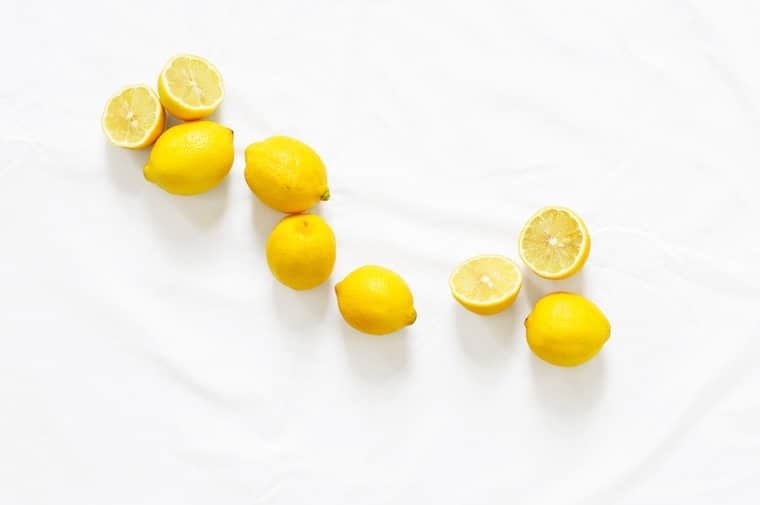
Apparently just the scent of lemons is one of the best foods for morning sickness. In a 2014 randomized controlled clinical trial, 100 pregnant women were asked to inhale either a lemon essential oil or a placebo. The nausea and vomiting intensity in the lemon group were statistically significantly lower than in the control group. Keep in mind, this was a small study and insufficient evidence exists to confirm these findings. Aside from just smelling lemons, according to the National Cancer Institute, sucking on sour lemon candies may also help with nausea. Remember that many of these are anecdotal, but if it works for some, it doesn’t hurt to try!
Tip: Keep fresh cut lemon slices in your kitchen, or squeeze lemon in your water. Suck on sour lemon candies.
Peppermint
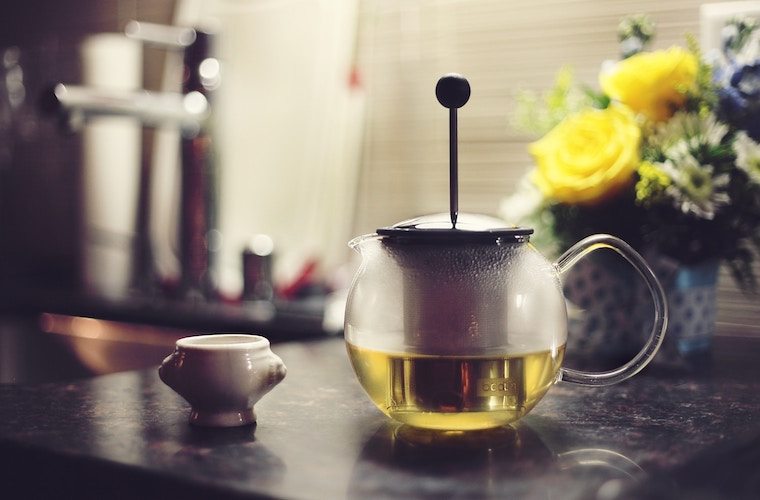
It’s not clear if peppermint can reduce nausea or is one of the best foods for morning sickness. Much of the evidence around its use is anecdotal, but it doesn’t hurt to try and it may work for you.
Tip: Sip on peppermint tea, or suck on a peppermint candy.
Vitamin B6
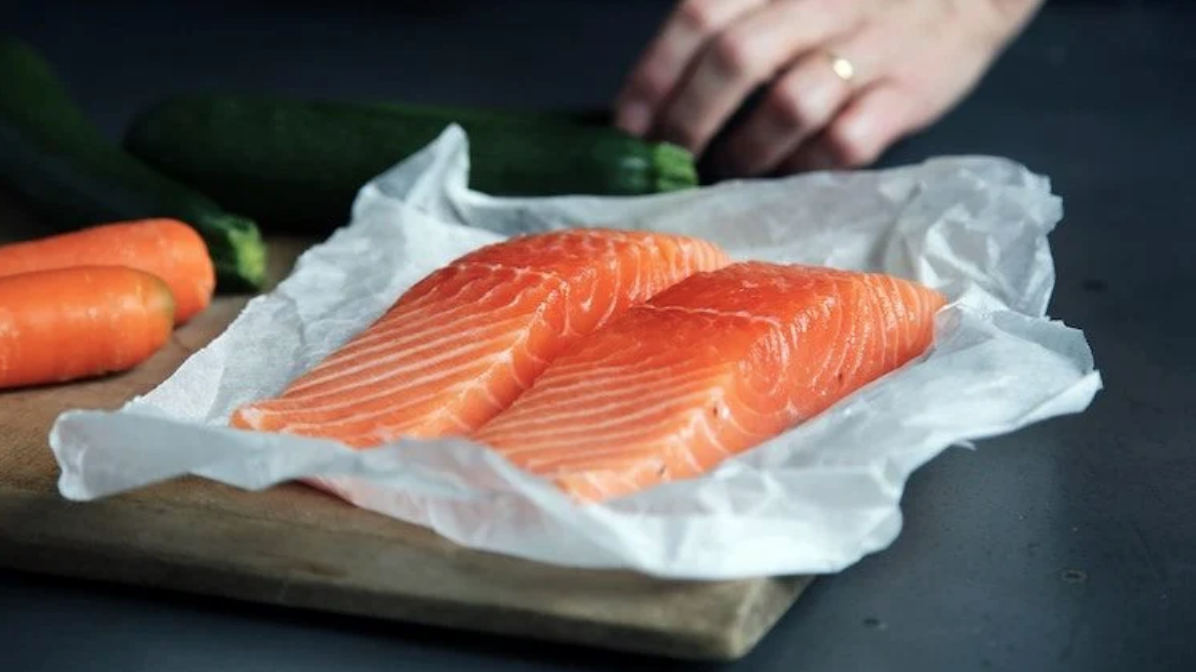
Two randomized controlled trials from 1991 and 1995 found that vitamin B6 was more effective than a placebo at improving symptoms of nausea, however whether vomiting was reduced was not proven. A more recent trial from 2014, 135 women given vitamin B6 experienced significantly reduced nausea and vomiting. I admit I did take B6 on days I had an important TV segment, but getting a little every day in your diet is best.
Tip: Look for foods rich in B6 like fish, potatoes and non-citrus fruit.
High Carbohydrates
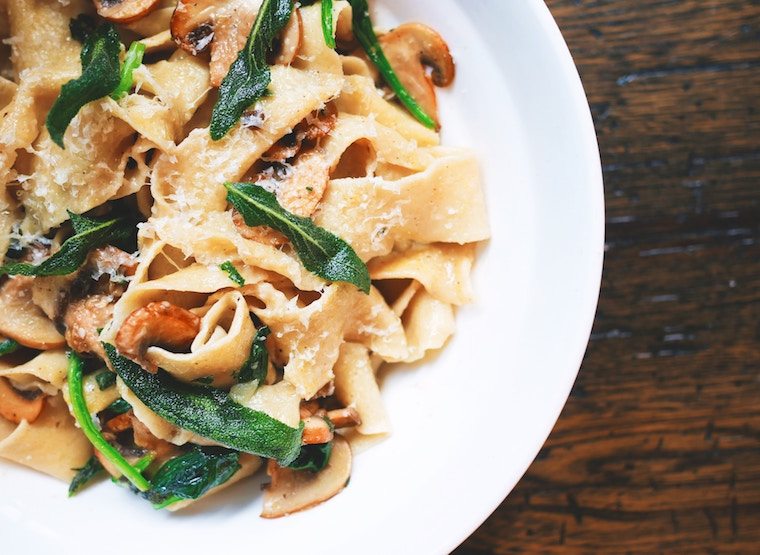
If you’ve ever been pregnant you remember going through packs of saltine crackers every week and keeping them by your bed. Is there any evidence to support this? Honestly, the majority of it is anecdotal or super old studies from the 1900s like this one. At the end of the day, large organizations like the American Institute for Cancer Research or publications like the American Family Physician recommend the consumption of bland foods like breads, crackers and cereals to ease nausea, but very little research proves that it can actually have an impact.
Tip: Choose higher-fibre carbs if you can tolerate them. I found I was eating a LOT of All Bran cereal because it kept my stomach full (and a full tummy is a non-nauseous tummy), wasn’t sweet or strongly flavoured and was a good crunch on top of yogurt or oatmeal.
High Protein
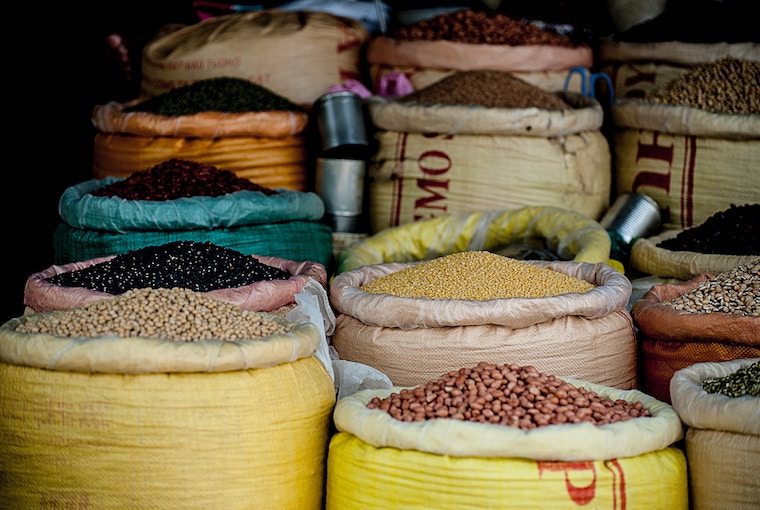
Evidence has shown that a diet high in protein may actually be much better reduce morning sickness. In a 1999 study, high protein meals reduced nausea and normalized gastric motility. In a more recent 2010 study, women in their first trimester who consumed a diet high in protein experienced less nausea and vomiting, while women who consumed a diet high in carbohydrates experienced more nausea and vomiting.
Tip: If you’re like me, you might have aversions to certain meat smells. Consider choosing plant based proteins like soy, edamame or pulses, or letting your meat cool down slightly so the odours are not as strong.
Skip Your Multivitamin and/or Iron Supplements

Multivitamins and iron supplements are known to cause nausea and vomiting, but they may still be important to take during your pregnancy.
Tip: Always take your vitamins with a bit of food and drink and try to change up the timing. Split up your vitamins between morning and night. Take your iron at a time when you’re feeling the least sick in the day.
Fluids

It is often recommended to drink fluids to help with nausea, however very little evidence actually backs these claims. The Cleveland Clinic advises the consumption of clear ice-cold drinks and to drink beverages slowly. The consumption of fluids makes sense if you have been vomiting and need to replenish lost fluids and electrolytes, but whether fluids are one of the best foods for morning sickness is up for debate.
Tip: Listen to your body and drink flat (not bubbly) fluids as needed.
Eat Small Meals
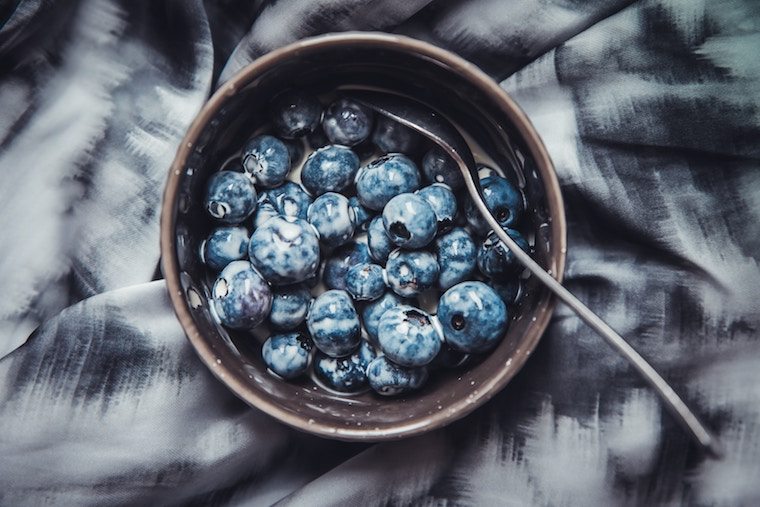
Most women report feeling sick when they get hungry, but getting too full can also trigger the unpleasant response.
Tip: Cut meal size in half but eat more often and regularly. Never letting yourself get too hungry or too full.
Can These Foods Really Help with Morning Sickness?
Sadly, morning sickness is inevitable for many women entering pregnancy. Many dietary recommendations prescribed are fairly weak in nature. Recently, The Society of Obstetricians and Gynaecologists of Canada released new guidelines on treating pregnant women suffering from nausea and vomiting. The new guidelines suggest that there is little evidence to support the idea that certain foods will actually relieve symptoms. Instead they recommend that women should just eat whatever pregnancy-safe foods they want. Honestly, I love this recommendation regarding the best foods for morning sickness. Just eat what you crave!
Bottom Line
Pregnancy is a really amazing time to practice mindful eating because your body is going to tell you exactly what it needs. Your job is just to listen. Most recommendations purely anecdotal and may work on one individual, but not with another because every body is different. Some of the foods mentioned above may have also worked because of the potential for the placebo effect. This is where we believe strongly that it will work, but not really based on any scientific evidence. In terms of the best foods for morning sickness, just do what works for you and find that “happy place” where you’re feeling your best.
Contribution By:
Sofia Tsalamlal, RD, MHSc
More Blog Posts You Might Like:
If you liked this blog post on the best foods for morning sickness, you might also enjoy more blog posts on pregnancy and nutrition:
- Is a Vegan and Vegetarian Diet Safe During Pregnancy?
- Dangers of Dieting During Pregnancy on Baby’s Risk of Obesity and Disease in Adulthood
- 6 Pregnancy Nutrition Myths That Are Total BS: Part 1
- Even More Pregnancy Nutrition Myths That We’re Sick of Debunking: Part 2
- Pregnancy Lessons I’ve Learned About My Body, Weight Gain, and Nutrition While Growing a Baby
- Vegan Pregnancy Diet | Essential Nutrients for a Vegan Pregnancy
Updated on June 19th, 2024

Abbey Sharp is a Registered Dietitian (RD), regulated by the Ontario College of Dietitians. She is a mom, YouTuber, Blogger, award winning cookbook author, media coach specializing in food and nutrition influencers, and a frequent contributor to national publications like Healthline and on national broadcast TV shows.

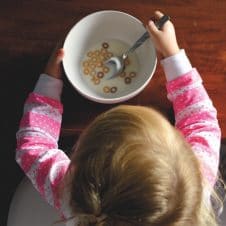

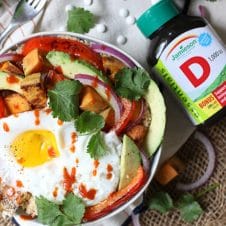

Angela Cardamone @marathonsandmotivation.com says
This is a great post, will pass this info along!
Abbey Sharp says
Amazing! Thanks Angela
Mikki says
Great tips ! I’m way past this stage but I can totally remember how it feels.
Abbey Sharp says
For sure. Thanks Mikki
dixya @food, pleasure, and health says
i will have to pass this to one of my friend as she is having a rough pregnancy too.
Abbey Sharp says
I hope it helps! Thanks for sharing 🙂
Emily says
Not pregnant at the moment, nor are any of my friends, but these are great tips! Saving for the day I’m lucky enough to be pregnant 🙂
Abbey Sharp says
Good plan girl!
Kathryn Pfeffer says
Abbey,
Thank you so much for sharing! This is something often seen with many food myths and your mention of sound science to back up these foods is so useful! I may be taking notes on this myself 😉 .
Abbey Sharp says
Amazing. Thanks Kathryn
Kelly says
I didn’t realize food could help with morning sickness, but it helps with so many digestive issues that it makes sense. Super helpful post!
Abbey Sharp says
Yeah! For sure. Thanks Kelly
Kalee says
So many of my friends are pregnant right now – this is such a helpful list of ideas to help!
Abbey Sharp says
It’s a busy season lol! Thanks Kalee
Sarah @ TheFitCookie says
Fortunately when I was pregnant with both of my kids, I didn’t have morning sickness but I did get nauseous sometimes if I waited too long to eat! And I had heart burn bad, so it helped me to eat small frequent meals.
Abbey Sharp says
Sounds rough! Thanks for sharing Sarah
Amy Gorin says
Great info! Thanks for sharing!
Abbey Sharp says
Thanks Amy!
Rachel says
When I was pregnant with my first born, all I ate were carbs. I was so scared of morning sickness that I wanted to head it off at the pass! I ended up gaining so much weight… lol. Oops.
Abbey Sharp says
Hahah we do whatever we can to avoid morning sickness!
Sarah says
Great tips and many of these are great for nausea in general. Sometimes the simplest things like ginger, water, shifting to higher carbs can make a world of difference.
Abbey Sharp says
Definitely!
Deborah Brooks says
It’s great to see that so much more info has come out in the last few years about pregnancy. Great stuff here!
Abbey Sharp says
For sure. So helpful
Christina says
I know many women who will benefit from your research and testing on this!! Thanks for sharing 🙂
Abbey Sharp says
I’m so glad. Thanks Christina
Rebecca says
such a great post! Definitely sharing with my pregnant friends 🙂
Abbey Sharp says
Amazing, thanks Rebecca 🙂
Fabiana @ No Wagon Diet says
Wow, such a comprehensive post! Thanks so much for the info. I used to struggle a lot with morning sickness (and still do if I’m waking up with an alarm). These are great tips!
Abbey Sharp says
Thanks so much!